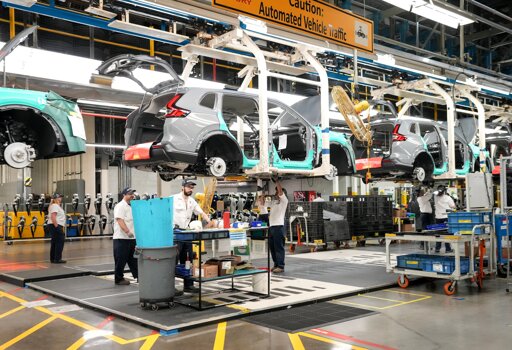Bold mine.
Since 2021, global auto giants including Volkswagen, General Motors, Ford and Honda — and battery-makers from South Korea to Sweden — have pledged $46.1 billion in investments, mostly in Ontario and Quebec. Canadian taxpayers have kicked in $52.5 billion through subsidies, tax credits and other funding from federal and provincial coffers.
Nevertheless, the wheels have begun to wobble enough in recent months to fuel doubts about how realistic Canada’s EV ambitions are.
Several automakers have postponed or shelved projects as consumers fret over battery range and gaps in charging networks for still-pricey electric vehicles. Battery producers facing lower prices and margins have scaled back, too.
At stake are thousands of new EV manufacturing and battery jobs, opportunities for scores of small and medium-sized suppliers, and Canada’s aim to be the critical minerals supplier to the world. A slow-down in the shift to electric cars, buses and trucks would also jeopardize plans to clean up the transportation sector, the country’s second-largest greenhouse gas emitter.



I live on Vancouver Island so I probably could ride an ebike 11-12 months a year, but I also live in a small town and work significantly further away than ebike range. So the only trips I could replace my car with an ebike would be in town, less than 10km round trip which is less than 1L of gas for even inefficient cars. Even if I went on one of those small rides every day off, best case scenario I’d save $350/yr. That would take a long time to pay off an ebike, not to mention the trailer I’d have to have for my kid and/or groceries to actually effectively replace a car trip.